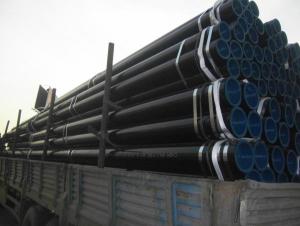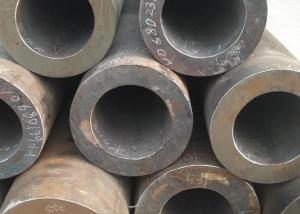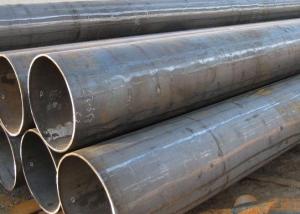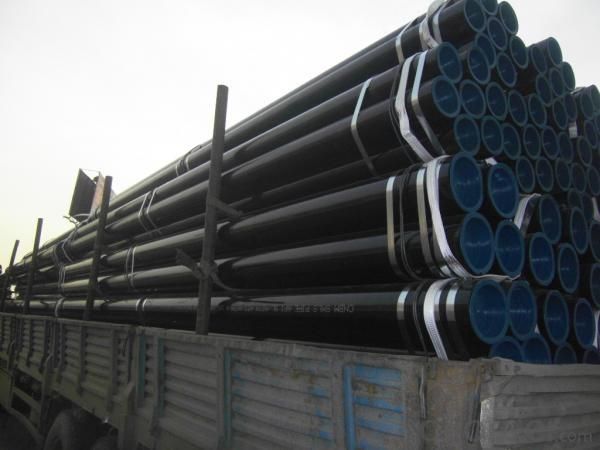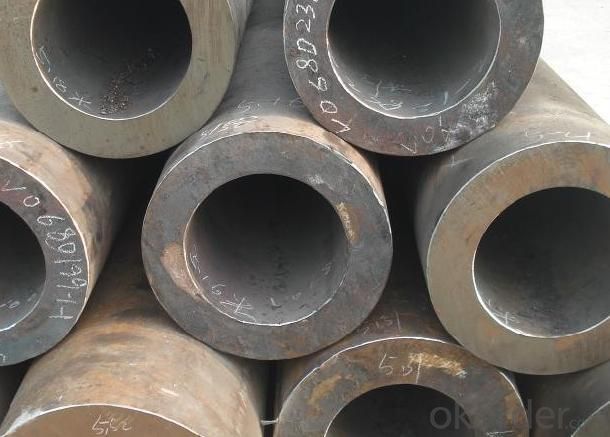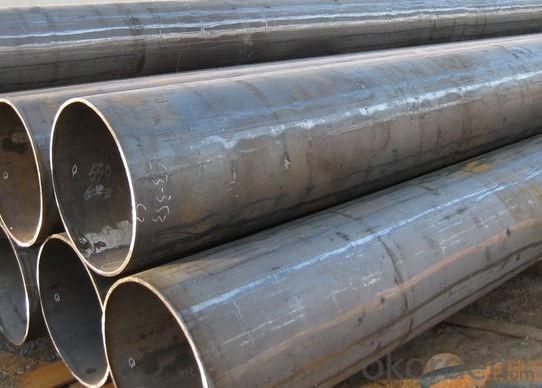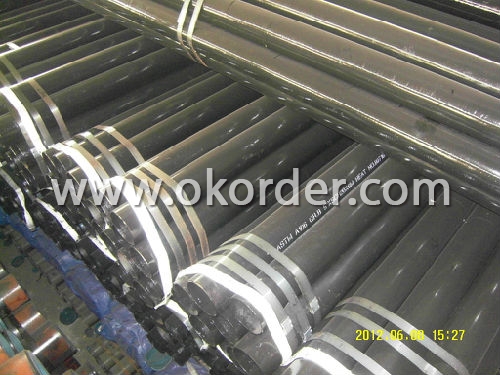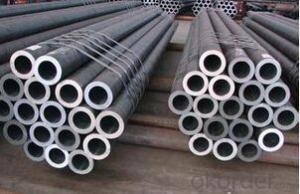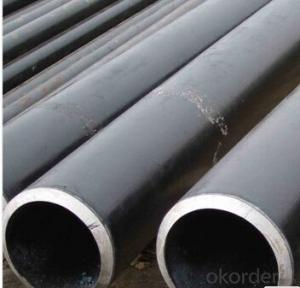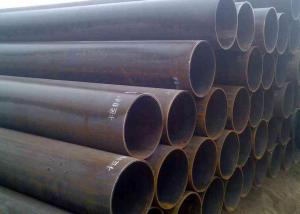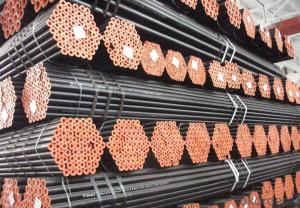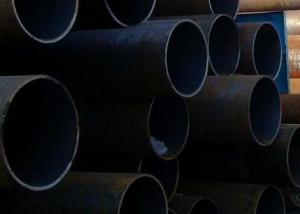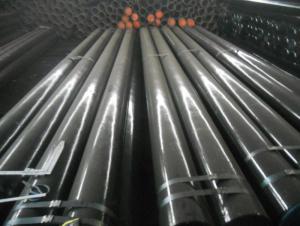ASTM A213-95a Seamless Steel Pipe For Low and Medium Pressure Boilers
- Loading Port:
- Tian Jin Port
- Payment Terms:
- TT or LC
- Min Order Qty:
- 50 MT m.t.
- Supply Capability:
- 5000 Tons Per Month m.t./month
OKorder Service Pledge
OKorder Financial Service
You Might Also Like
| Seamless Steel Tubes and Pipes for Low and Medium Pressure Boiler |
| |||||||||||||||||||||||||||||||||||||||||||||||||||||||||||
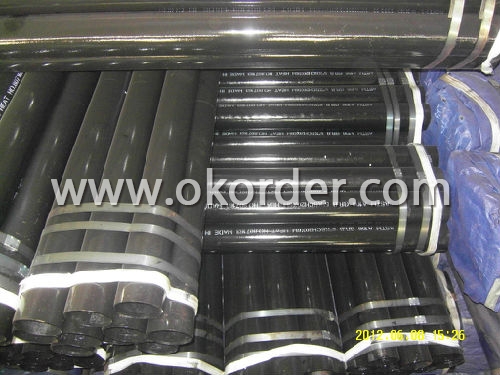
- Q: How are steel pipes used in the food processing industry?
- Steel pipes are commonly used in the food processing industry for various purposes such as transporting liquids, gases, and solids, as well as for conveying hot water, steam, and chemicals. These pipes are known for their durability, corrosion resistance, and ability to withstand high temperatures, making them ideal for applications where strict hygiene and safety standards are essential. Steel pipes are used in food processing plants for tasks like transferring ingredients, transporting processed products, and maintaining a sterile environment through steam cleaning and sanitization processes.
- Q: Can steel pipes be used for brewery installations?
- Yes, steel pipes can be used for brewery installations. Steel pipes are often used in breweries for various applications such as transferring fluids, connecting equipment, and creating plumbing systems. Steel pipes are known for their durability, strength, and resistance to corrosion, which makes them suitable for handling the harsh conditions and high-pressure environments typically found in brewery installations. Additionally, steel pipes can be welded together, allowing for seamless connections, ensuring a reliable and leak-free operation. However, it is important to ensure that the steel pipes used in brewery installations meet the necessary standards and regulations to ensure the safety and quality of the beer production process.
- Q: How do steel pipes handle extreme temperatures?
- Steel pipes are designed to handle extreme temperatures due to their high thermal conductivity and resistance to heat. At high temperatures, steel pipes expand but maintain their structural integrity, preventing them from warping or weakening. Additionally, steel's low thermal expansion coefficient allows it to withstand rapid temperature changes without significant damage. Overall, steel pipes are well-suited for transporting hot or cold fluids and gases in various industrial applications.
- Q: What is the standard length of steel pipes?
- The standard length of steel pipes varies depending on the industry and application, but common lengths range from 10 to 40 feet.
- Q: What are the different coating options for steel pipes?
- Steel pipes have numerous coating options to choose from, each serving a specific purpose and offering unique advantages. Some common coating options for steel pipes include: 1. Fusion Bonded Epoxy (FBE) Coating: FBE coating is widely used across industries due to its exceptional corrosion resistance, impact resistance, and adhesion to the pipe surface. This coating is typically applied through a heat-induced chemical reaction, resulting in a durable and protective layer. 2. Polyethylene (PE) Coating: PE coating is commonly employed for underground steel pipes as it provides superior resistance against corrosion, abrasion, and chemicals. It is applied using extrusion techniques, forming a seamless layer that prevents moisture penetration. 3. Polyurethane (PU) Coating: PU coating is renowned for its outstanding resistance to abrasion, chemicals, and harsh environmental conditions. It is frequently used for steel pipes exposed to extreme temperatures or aggressive environments. Multiple layers of PU coating can be applied to enhance protection. 4. Coal Tar Enamel (CTE) Coating: CTE coating is a traditional choice for steel pipes requiring protection against corrosion. It is a thick, black coating that effectively resists water, soil, and atmospheric corrosion. This coating is typically applied using a hot-applied method. 5. Zinc Coating: Zinc coating, also known as galvanization, is a widely used protective coating for steel pipes. It involves applying a layer of zinc to create a barrier against corrosion. Zinc coating can be applied through hot-dip galvanization or electro-galvanization techniques. 6. Concrete Coating: Concrete coating is often utilized for steel pipes in underground or submerged applications. It provides a robust protective layer against corrosion, abrasion, and mechanical damage. Concrete coating is typically applied as a cement mortar or reinforced concrete layer. These options represent just a few of the available coatings for steel pipes. The selection of a coating depends on factors such as the intended application, environmental conditions, and desired durability. Choosing the appropriate coating is crucial to ensure the longevity and performance of steel pipes in various industries.
- Q: What are the different types of steel pipe fittings for chemical processing plants?
- There are several types of steel pipe fittings commonly used in chemical processing plants, including elbows, tees, reducers, flanges, and valves. Elbows are used to change the direction of the flow, tees are used to combine or split the flow, reducers are used to connect pipes with different diameters, flanges are used for connecting pipes and valves, and valves control the flow of fluid within the system.
- Q: What place must use galvanized steel pipe to make lighting line?
- Galvanized steel pipe with hot-dip galvanizing or galvanized coating on it. Galvanizing can increase the corrosion resistance and prolong the service life of the steel pipe. The use of galvanized pipe is very wide, except for water, gas, oil and other general low pressure fluid pipeline, is used in petroleum industry especially offshore oil well pipe and oil pipe, chemical coking equipment oil heater, cooler, oil pipe exchanger for coal distillation, and support piles, Zhanqiao mine tunnel the tubes.
- Q: What is the difference between steel pipes and cast iron soil pipes?
- Steel pipes and cast iron soil pipes are both used for plumbing and drainage systems, but they differ mainly in their material composition and durability. Steel pipes are typically made from an alloy of iron and carbon, which provides them with high strength and resistance to corrosion. On the other hand, cast iron soil pipes are made solely from iron, making them more susceptible to rust and corrosion over time. Additionally, steel pipes are generally lighter, easier to handle, and more flexible than cast iron soil pipes. However, cast iron soil pipes are known for their superior soundproofing properties, making them a preferred choice in buildings where noise reduction is crucial.
- Q: How do you calculate the pipe flow velocity for steel pipes?
- To calculate the pipe flow velocity for steel pipes, you can use the formula: Velocity = (Flow rate / (π * (Diameter/2)^2)). This equation takes into account the flow rate of the fluid through the pipe and the diameter of the steel pipe.
- Q: How are steel pipes used in the shipbuilding industry?
- Steel pipes are commonly used in the shipbuilding industry for various applications such as the construction of the ship's hull, piping systems for fuel, water, and other fluids, as well as for the ventilation and drainage systems on board. These pipes provide strength, durability, and corrosion resistance, making them ideal for withstanding the harsh marine environment.
1. Manufacturer Overview
| Location | Jiangsu, China |
| Year Established | 1992 |
| Annual Output Value | 60,000Tons |
| Main Markets | Europe and the United States;Canada; India;Bulgaria; South Korea;etc. |
| Company Certifications | API 5L;API 5CT;GB/T19001-2008 idt ISO9001:2008 |
2. Manufacturer Certificates
| a) Certification Name | |
| Range | |
| Reference | |
| Validity Period |
3. Manufacturer Capability
| a) Trade Capacity | |
| Nearest Port | Yan Cheng |
| Export Percentage | 50% - 60% |
| No.of Employees in Trade Department | 400-500 People |
| Language Spoken: | English; Chinese; Spanish |
| b) Factory Information | |
| Factory Size: | Above 110,000 square meters |
| No. of Production Lines | Above 10 |
| Contract Manufacturing | OEM Service Offered; Design Service Offered |
| Product Price Range | Average |
Send your message to us
ASTM A213-95a Seamless Steel Pipe For Low and Medium Pressure Boilers
- Loading Port:
- Tian Jin Port
- Payment Terms:
- TT or LC
- Min Order Qty:
- 50 MT m.t.
- Supply Capability:
- 5000 Tons Per Month m.t./month
OKorder Service Pledge
OKorder Financial Service
Similar products
Hot products
Hot Searches
Related keywords
